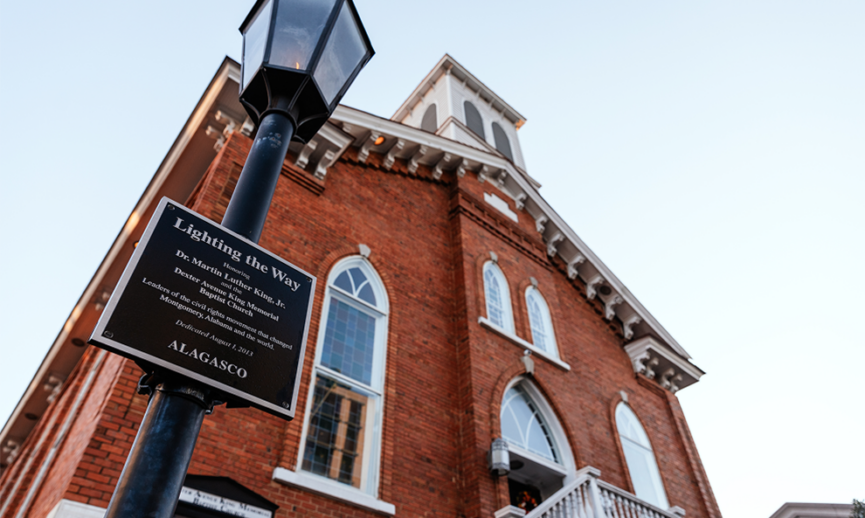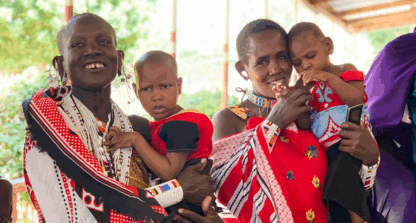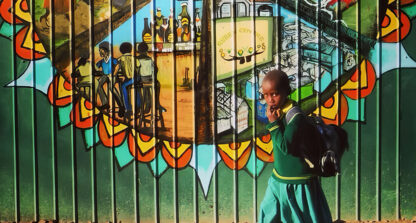Walking toward justice: Reflections from our recent Impact Journey to Alabama

“What brought you here, and now that you’re here, what are you going to do?”
This question, posed to our group by civil rights activist Doris Crenshaw, still echoes in my mind weeks after returning from our transformational Impact Journey through Alabama. As I reflect on the week our small group spent walking in the footsteps of history along the Civil Rights Trail, I realize we experienced something far beyond travel. We engaged in a profound exploration of America’s painful past and its present-day implications—one that challenged us, moved us to tears, and ultimately, called us to action.
More than history—living memory
Our journey began in Montgomery, where Michelle Browder—artist, activist, and force of nature—guided us through the city’s historic waterfront, once the site of one of America’s busiest slave markets. Michelle’s storytelling doesn’t just recount history; she brings it to life with urgency and relevance. Her powerful commentary on how the legacy of slavery continues to shape present realities created a framework for understanding everything we would experience in the days ahead.
This became even clearer during our visit to her remarkable Mothers of Gynecology monument, honoring three enslaved women subjected to experimental surgeries without anesthesia. The sculpture transforms their suffering into a powerful testament to resilience, while educating visitors about the ongoing racial disparities in healthcare.
What makes these experiences so unique is the intimate access to people who lived this history or are actively working to address its consequences. At the Harris House, we met Dr. Valda Harris Montgomery, who grew up next door to Dr. Martin Luther King Jr. during the Montgomery Bus Boycott. As we sat in her family living room—once a refuge for Freedom Riders and civil rights leaders—she shared personal memories that no textbook could capture.
Crossing the bridge
The emotional pinnacle of our journey came in Selma, as we walked across the Edmund Pettus Bridge with our guide Jake Williams. In 1965, peaceful marchers were brutally attacked by state troopers on what became known as “Bloody Sunday.” As we retraced their steps in silence, I watched my fellow travelers absorb the weight of this history.
As one past participant reflected: “Standing on the Edmund Pettus Bridge—the site of Bloody Sunday—held deep meaning for each of us. The courage of John Lewis and so many others who knew they would be severely beaten and still chose to march forward was profoundly moving.”
The power of collective witnessing
What struck me most was the transformation I witnessed in our group itself. We began as fifteen individuals—clients and Brighton Jones colleagues from diverse backgrounds and political perspectives. By the third day, these differences faded as we processed difficult truths together.
At the Legacy Museum, created by Bryan Stevenson’s Equal Justice Initiative, we moved through exhibits connecting the dots from slavery to mass incarceration. The space invites quiet reflection, but our group found strength in community as we processed what we were seeing and learning.
Our evening conversations often lasted late into the night, as we grappled with what we’d witnessed and how it shapes our world today. These discussions, facilitated by our guides but driven by genuine curiosity and concern, created a rare space for authentic dialogue about race, justice, and our shared responsibility.
From witness to action
On our final evening, we gathered for dinner with leaders from the Southern Poverty Law Center, who shared their inspiring work identifying and disabling hate groups while developing community-based approaches to deradicalization. Their clear-eyed pragmatism about the challenges ahead was balanced by unwavering hope in the power of committed individuals to make change.
One client who joined us directly expressed in a follow-up reflection from one of our clients: “While it may sound like an exaggeration, I believe this was the most meaningful trip I have taken to date… now that I’m more deeply aware of the history, the legacy of slavery, and the rise of intolerance and hate groups domestically and internationally, I have a heightened sense of urgency. Justice delayed is justice denied.”
This sense of urgency has translated into concrete commitments. Many participants have developed personal action plans, like the one shared by this same client: “I will start with participation in Brighton Jones’ Community Impact Circle for Racial Justice… I will also join my other fellow travelers at Brighton Jones’ hosted events and learning opportunities in 2025 with leaders we met in Alabama like the Southern Poverty Law Center.”
Another past participant shared: “I returned from Alabama with a deeper understanding of how racism continues to permeate our systems and institutions today, and how the fight for racial justice is far from over. I came away with a renewed commitment to be part of the solution.”
The journey continues
Our Alabama journey wasn’t just about witnessing history—it was about recognizing our place within it and accepting the invitation to help write its next chapter. Michelle Browder’s challenging question remains with us: “What is your place in this movement today?”
The answers will be different for each person who experiences this journey. But what remains consistent is the transformation that occurs when we step beyond the comfort of distance and truly engage with difficult truths. These five days in Alabama weren’t the end of a journey, but rather the beginning of a deeper commitment to justice.
As a past participant eloquently put it: “The trip allowed me to wrestle with what it means to live in a country with such a dark past, much of which continues today, and how I might use my own skills and resources to bring about the restoration and reconciliation our country so desperately needs.”
As we prepare for our 2025 Alabama trip, I’m reminded that these experiences create ripples far beyond the individuals who participate. Each person returns home carrying new understanding that influences their communities, families, and work. In this way, the journey continues long after we’ve returned home.
And that, perhaps, is the most meaningful form of travel there is.
Interested in joining our next Impact Journey to Alabama? Contact the Brighton Jones Impact Team at impact@brightonjones.com to learn more about upcoming trips.



